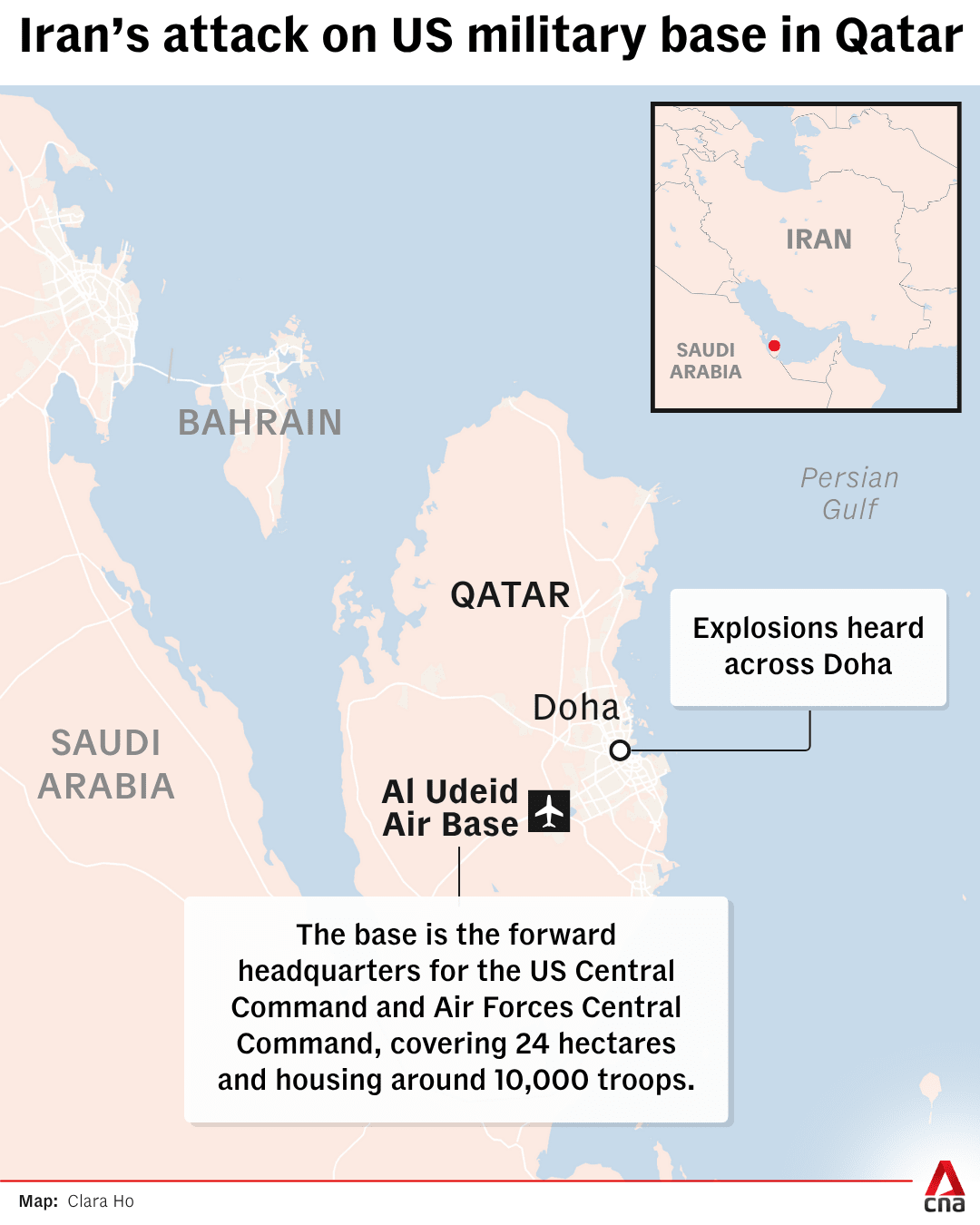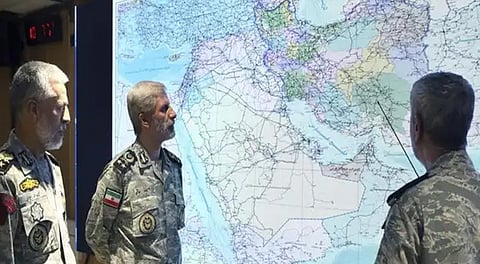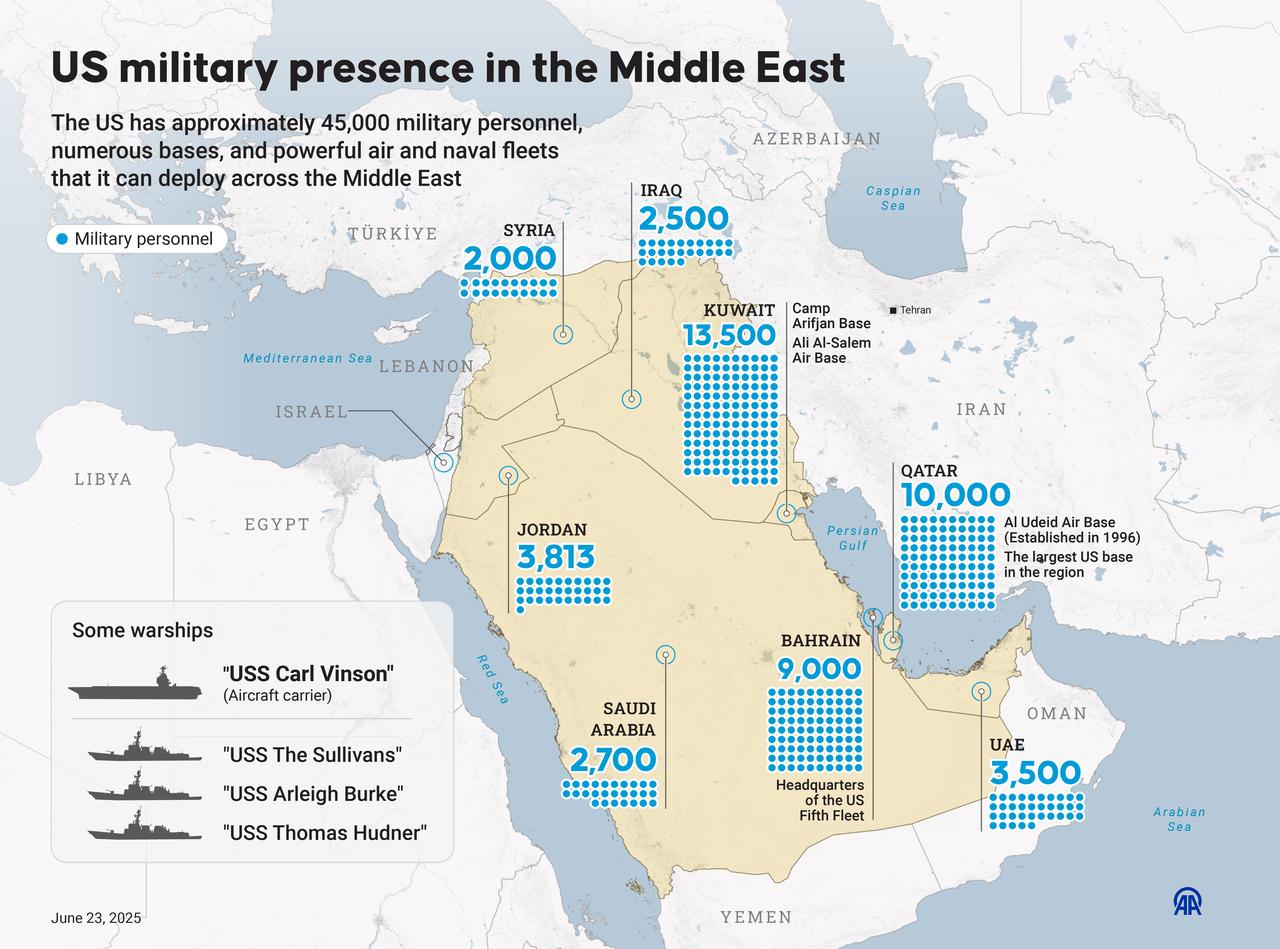Introduction
On June 23, 2025, Iran US base Qatar launched a missile attack targeting the US Al Udeid Air Base in Qatar. This unprecedented strike comes in retaliation for recent US attacks on several Iranian nuclear facilities, escalating an already tense Middle East crisis. While the base was evacuated in advance, preventing any casualties, the international response to Iran’s strike has been swift and sharp.
United States: Trump Responds on Truth Social
US President Donald Trump downplayed the attack, calling it a “very weak response” that had been effectively countered. Posting on Truth Social, he stated Iran US base Qatar:
“I want to thank Iran for giving us early notice, which made it possible for no lives to be lost… Perhaps Iran can now proceed to Peace and Harmony in the Region, and I will enthusiastically encourage Israel to do the same.”
Trump’s message signaled cautious optimism that further escalation may be avoided.

Iran: “We Didn’t Harm Anyone”
In a post on X, Iran’s Supreme Leader Ayatollah Ali Khamenei declared:
“We didn’t harm anyone. And we will not accept any harassment from anyone under any circumstances.”
Iran framed the attack as a limited, calculated retaliation while asserting its unwillingness to submit to foreign pressure.
Qatar: Condemns Violation of Sovereignty
Qatar’s Foreign Ministry strongly condemned the strike:
“This was a flagrant violation of the sovereignty of the State of Qatar, its airspace, international law, and the United Nations Charter. Iran US base Qatar reserves the right to respond directly in a manner equivalent with the nature and scale of this brazen aggression.”
Gulf Cooperation Council (GCC) Members React
Saudi Arabia
Saudi Arabia condemned the attack in “the strongest terms possible,” calling it:
“A flagrant violation of international law and the principles of good neighborliness, and an entirely unacceptable act.”
United Arab Emirates (UAE)

The UAE echoed similar sentiments:
“A flagrant violation of Qatar’s sovereignty and airspace, and a clear contravention of international law and the UN Charter.”
Bahrain
Bahrain expressed full support for Qatar:
“The GCC countries remain united and will exercise necessary efforts to exercise self-restraint and resolve disputes through peaceful means.”
Kuwait
Kuwait described the attack as:
“A dangerous escalation that threatens peace, security, and stability in the region.”
France: Urges De-escalation
French President Emmanuel Macron expressed solidarity with Qatar and called for restraint:
“I call on all parties to exercise the utmost restraint, de-escalate, and return to the negotiating table. This spiral of chaos must end.”

China: Criticizes US Strikes, Urges Dialogue
China offered a different perspective. Foreign Minister Wang Yi criticized the initial US strikes, saying:
“The US attacks on Iran’s nuclear facilities sent wrong signals to the world and set a bad precedent.”
China urged all parties to return to negotiations, warning against escalating the conflict further.
Palestinian Authority: Condemns Iran’s Action
The Palestinian Authority (PA) issued a rare rebuke of Iran, calling the missile attack:
“A blatant violation of Qatari sovereignty.”
A Dangerous Moment in Middle East Geopolitics
The global reactions to Iran’s missile attack on the US base in Qatar highlight the serious diplomatic risks in the region. While both Washington and Tehran have signaled a desire to avoid all-out war, the situation remains volatile with many regional actors condemning Iran US base Qatar actions as dangerous violations of sovereignty and international law.
The events underline Qatar’s critical role as a US strategic partner in the Middle East and reveal the complex network of alliances and rivalries that define today’s Gulf geopolitics. As world leaders call for restraint, observers now wait to see whether this incident marks a turning point or simply another chapter in the ongoing Iran-Israel-US standoff.

For more breaking news and analysis on the ongoing Middle East crisis, read our full coverage here.
External Reference
Image
